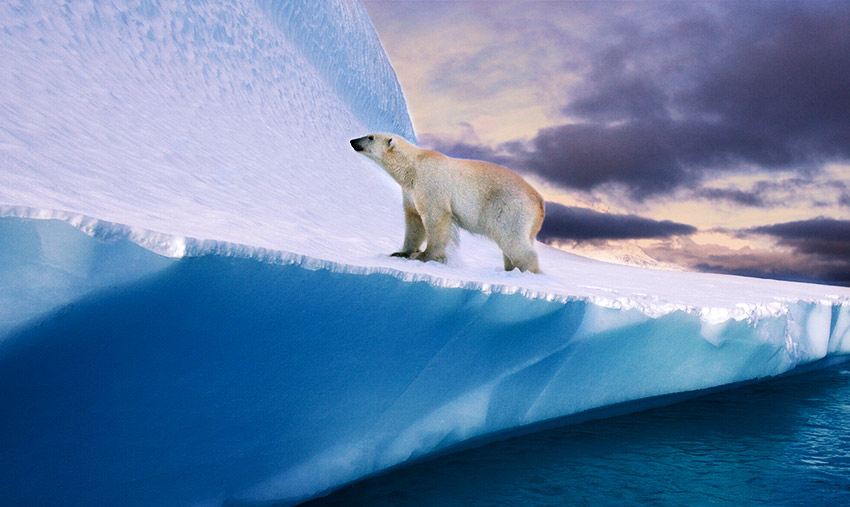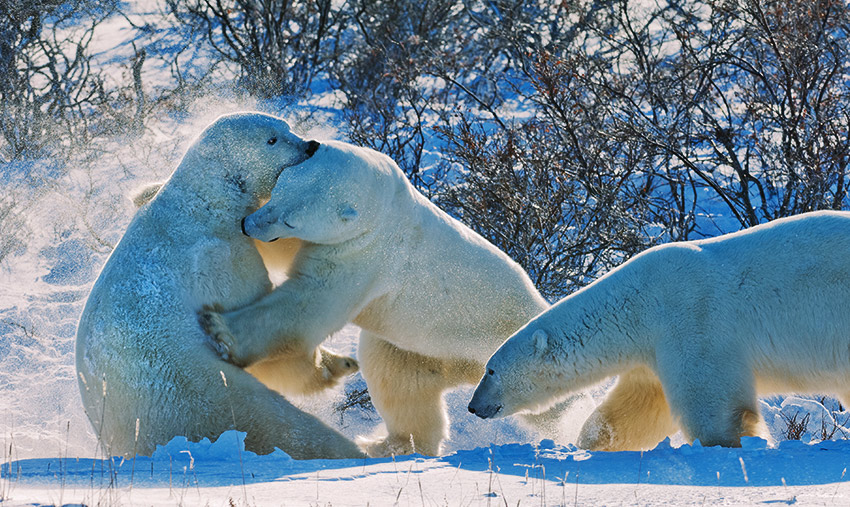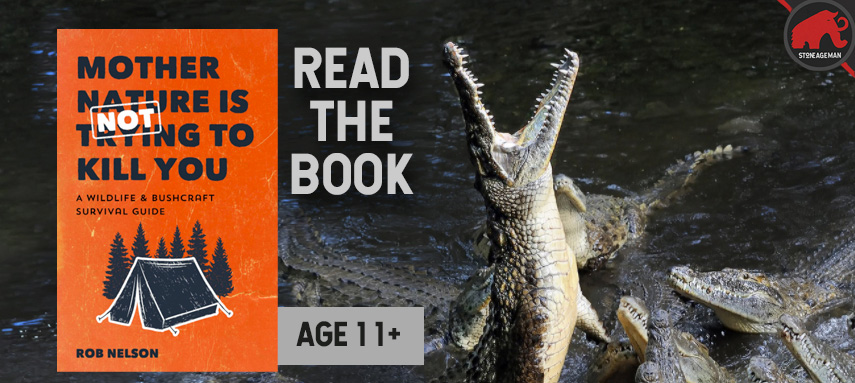How to Survive a Polar Bear Attack


FIRST: Understand Polar Bear Biology
Polar bears are the largest and most formidable bear on the planet. If you’re in their country, you’re on the menu. This makes sense if you think about it for even a moment. If you’re a massive predator that has to survive your entire life on a frozen ice-cap, you may have to fend off other predators, but your biggest concern is going hungry. Polar bears are curious, large and by necessity to the environment they live in, aggressive enough to eat anything.
Most of the year, polar bears look for seals and hunt on the pack ice. When they can’t do that, they supplement their diet with bird eggs and the occasional berries here or there. For the most part though, they’re meat eaters.
While there is some controversy as to whether or not polar bears are going to go completely extinct due to climate change, it doesn’t take rocket science to figure out that less ice means less polar bears. That’s their home. And they are not well-suited to hunting in areas without ice.
More importantly, if you’re traveling in Polar Bear country, and there is anything you take from this chapter, it’s to come prepared. Unlike most of the other animals in this book, whereby attacks are rare incidents, a polar bear encounter needs to be dealt with quickly and prevention is the key.

Scenarios to Avoid in Polar Bear Country
- Avoid traveling at night in polar bear country
- Don’t be drunk and outside – you’ll need your senses with you at all times.
- Don’t attract a bear to your camp intentionally or unintentionally with food. They are extremely intelligent and will stick around.
- Don’t be out without bear spray or a weapon.
- Don’t sleep without some form of protection – inside a vehicle, or with some type of advanced security fence around you.
The Most Dangerous Polar Bears
Polar bears, especially hungry males that have washed in from the sea ice, can be a big problem. Even worse are polar bears that have learned human settlements mean food. Remember, polar bears are big and almost always hungry.

How to Survive a Polar Bear Attack?
In the fortunate circumstance that you end up exploring in polar bear country, it is extremely important that should you see a polar bear, you’re prepared. Preparation is your best bet if you’re worried about your safety. Bear spray and/or a firearm are key items you need in your kit.
Bear Spray is 98% effective, so using this is your best bet.
Firearms are harder to use because people don’t have much practice shooting something that’s running at them. They’re only effective 76% of the time. Then again, nobody would advise you to be in polar bear country without a high caliber firearm. Best best, go with a knowledgeable guide.
- If you’re camping, another great precaution is to use an electric fence to ward off the bear.
- Definitely don’t act like prey. That means no running.
- If it doesn’t see you, don’t do anything.
- If it does see you make yourself big and act like a threat. It may be fooled by this. Then again, it may not.
- If a polar bear does attack you, playing dead won’t help much. An attack means they probably see you as prey, so playing dead might just make their job easier.
- Fighting back may not help much either because they’re incredibly powerful predators with sharp everything. That being said, your best line of defensive attack is to go for the eyes and nose. They’re the most sensitive areas and two things a polar bear needs to continue the attack.
- If you survive, you’ll be one of the lucky ones! Should you happen to survive a polar bear attack, the silver lining is that you can write an amazing book about it!
Fun Fact: Polar bears will actually mate with brown bears in rare instances where the ranges overlap. These bears are called grolar bears or pizzly bears. It makes sense that they could interbreed too given that scientists think polar bears evolved from brown bears only about 2 million years ago years ago.
Prefer to Listen?
To make this more accessible I recorded this audio version explaining the basics of how to avoid and survive a polar bear attack. I hope you enjoy this short listen.

